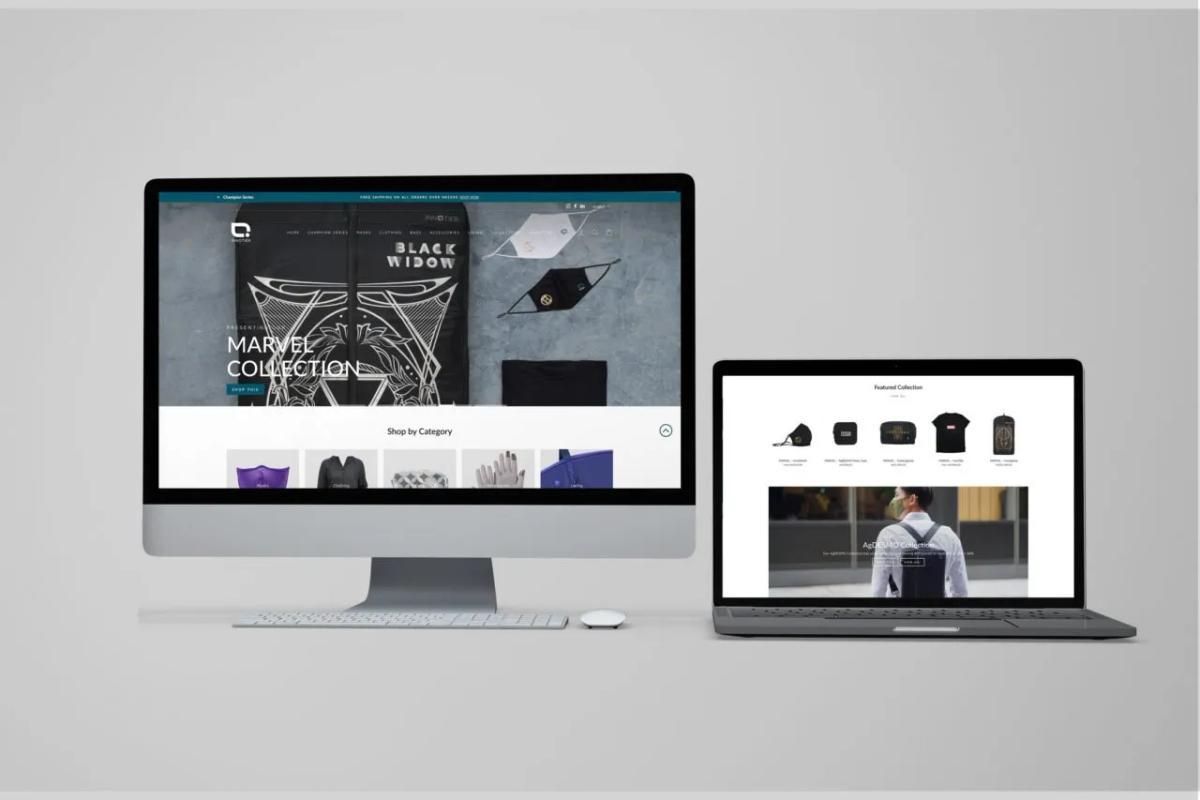Ecommerce Academy
HSBC VisionGo X Navy FAB Webinar Recap: Key Factors On Creating A Successful Ecommerce Business During Covid
Nov 2nd, 2022

Navy FAB and HSBC VisionGo co-hosted a webinar on 11th May 2022 on the topic “Key factors of creating a successful eCommerce business during Covid”. With expertise in eCommerce, the Navy FAB team looks into crucial factors for success in online business and shares tips and tricks for 2022.
Here is a quick recap of the event in case you want to revisit it!

With the boom in online shopping ever since the pandemic, whether a new business or an operating business considering O2O (Offline to Online), having a successful online business can be challenging. How can you launch your site and stay competitive in the eCommerce market? What are the factors you need to know before launching? How do you know which platform is the right one for you?
Topics covered:
1. Steps on building an online store
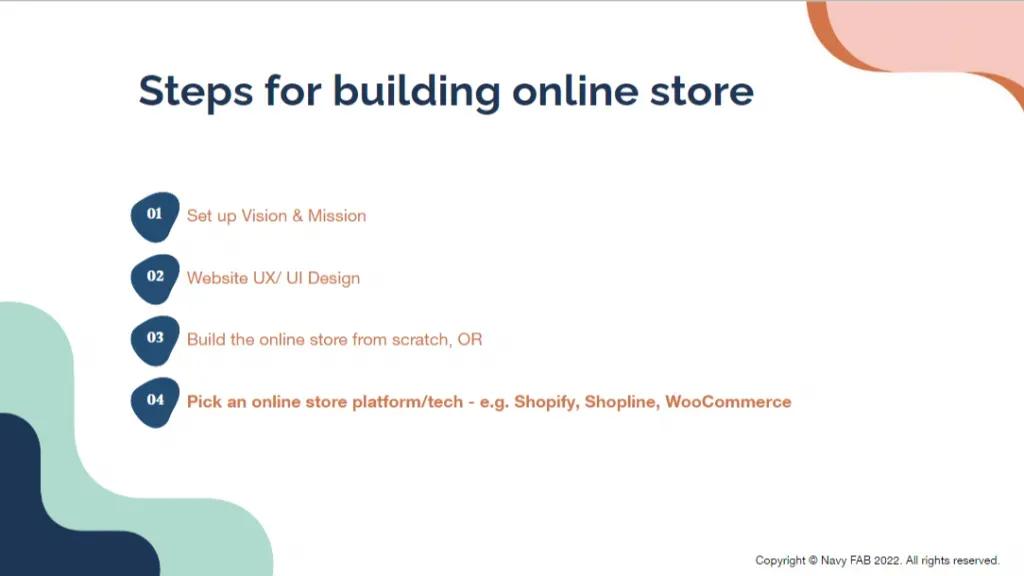
Set up Vision & Mission
The company’s core brand value and vision. What is your aim in starting an online business and who is your target market? How do you want your customers to perceive your brand? These questions first need to be answered before you start setting up your store.
Website UX/ UI Design
As we said before, how do you want your customers to perceive your brand? This will greatly affect the UX/UI design of your websites as choosing the right brand colors, font style, and website functionality is some of the important criteria for new eCommerce sites.
Build the online store from scratch, OR pick an online store platform
Once you have decided on the company’s digital branding, you will need to decide whether you will be building the online store from scratch or choosing online store platforms such as Shopify, Shopline, or open-source software like WooCommerce.
2. Ecommerce Platform Functionalities & Differences
Using an eCommerce platform to build your website saves you much more time than building one from scratch. However, as there are different platforms available in the market, you really have to research and find out which one is the most suitable for your brand. A few common criteria to make this decision will be the geographical location of your target market, your business model (O2O, B2B, B2C, C2B, C2C), selling locally or internationally, hence multi-language, and multi-currency are needed? Most importantly, do you have a team or member who has a deep understanding of web technologies? There are also other factors, you can visit our page to see a detailed comparison among different platforms.
3. Keys to a successful eCommerce business in 2022
M-commerce (Mobile commerce)
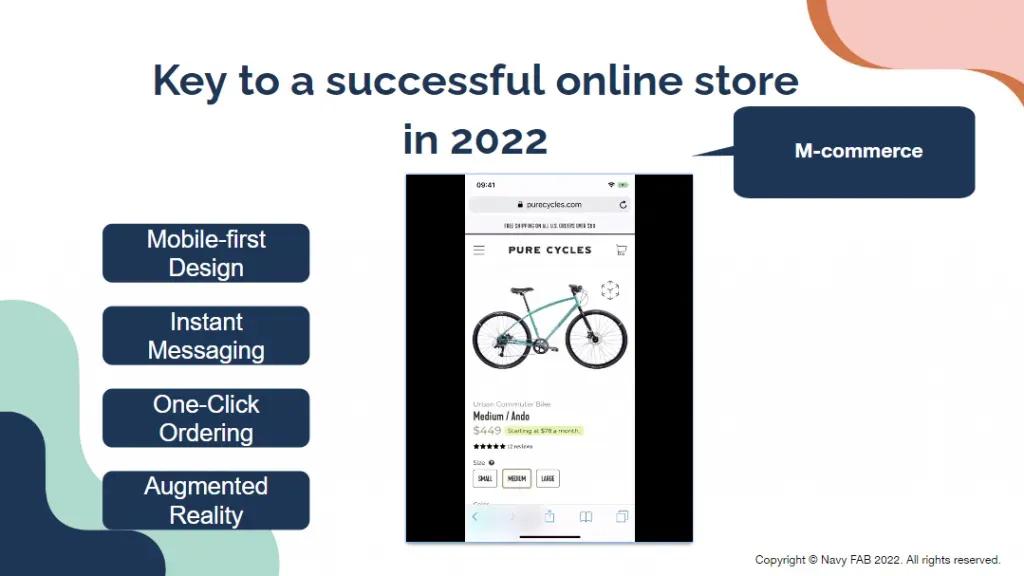
Mobile commerce not only refers to online purchasing platforms but also includes in-app purchasing, mobile banking, and digital wallets. It has been predicted that mobile commerce growth in Hong Kong will increase by 13.2% by 2023 due to high internet penetration, especially with the launch of 5G.
When working on the design and set up of an online store, we are too focused on the desktop design and neglect the user-friendliness of the mobile version, resulting in creating a functionality discrepancy between desktop and mobile.
Seamless O2O experience
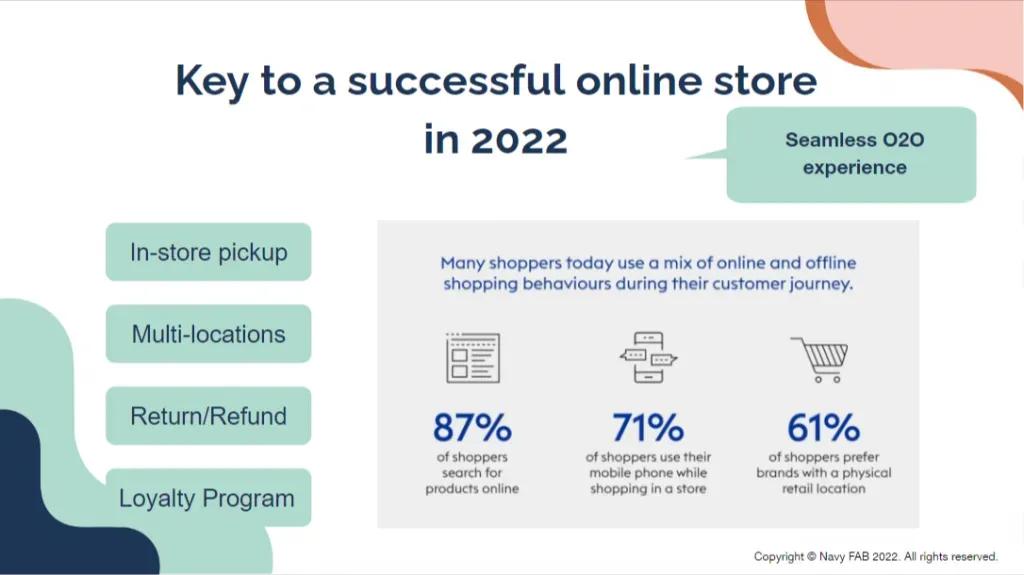
With the change in customers’ shopping behavior ever since the pandemic, more and more companies are trying to make the O2O experience more seamless for their customers. Allowing buying online, picking up at the store, joining loyalty programs and keeping track of it, returning items in person, etc will give customers greater flexibility and a convenient purchase process. Sign up for a Shopify POS Pro trial here to understand more about how Shopify POS can enable a seamless O2O experience.
First-party Customer Profiling
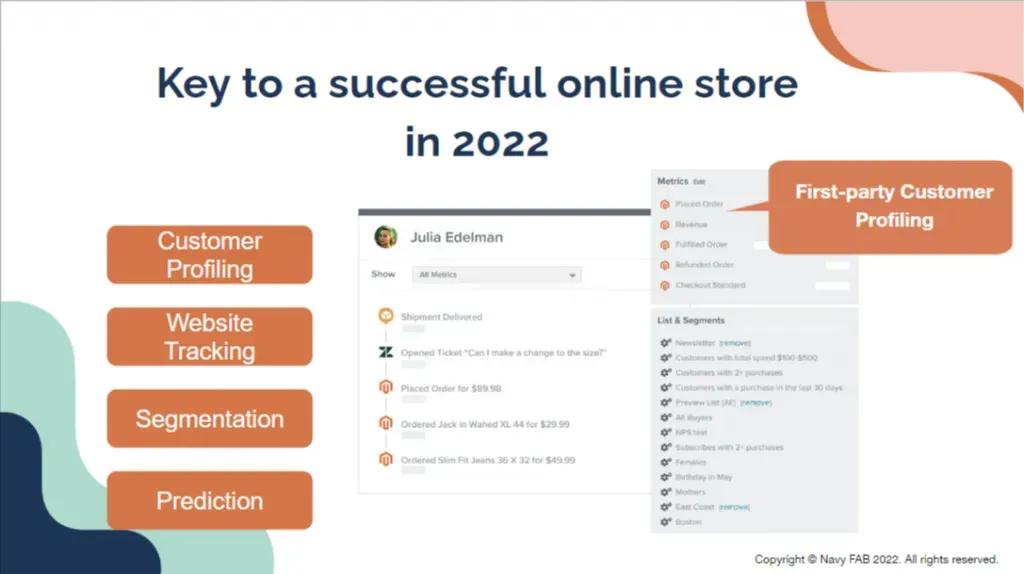
How well do you know your customers? How can you turn them into loyal customers and retain them? You need to segment your customers for instance based on their purchase behavior, purchase items, last active on-site, etc. This gives you an idea of how your customers behave and can also be used as a reference to target new customers who are likely to purchase from you. Common website analytic tools like Google Analytics can only provide collective data, while first-party data is information that companies can collect from their own sources. In other words, all information about customers from both online and offline sources, such as the company’s website, app, CRM, social media, or surveys is first-party data.
One of the common tools that you can use is Klaviyo. Sign up for a Klaviyo account here and connect it to your online store and try it out.
3. Sharing by one of Navy FAB’s clients, Innotier
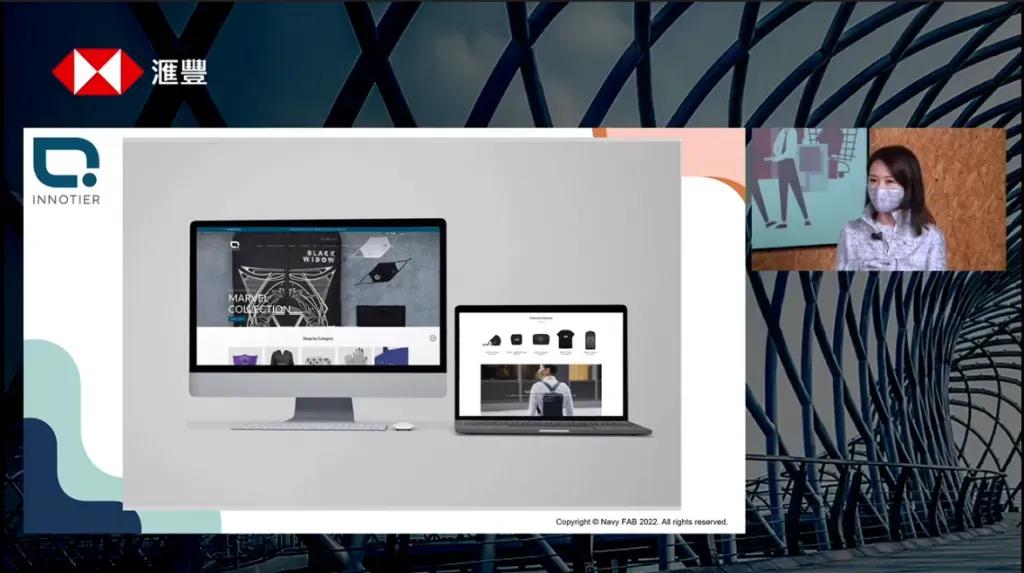
Innotier is a fast-growing tech innovation company in Hong Kong, with the aim of creating people’s lives more sustainable. Starting off as a B2B business garment factory is now a B2C company with a flagship store in Central with expanded product lines. Ms. Julian Lam, the co-founder of Innotier shares her difficulties and tips on running an eCommerce business.
Some of the challenges that they faced are not having an internal warehouse for shipping services, figuring out how to align eCommerce content with their brand identity, managing new product lines and updating website content, and most importantly, constantly ensuring that the website is user-friendly.
From their experience, here are some tips for new eCommerce business owners:
Always stay consistent with your brand value and mission, making sure that you have the correct digital branding before you launch your site. If you are not sure what products or services to sell, do research to figure out what is in high demand in the market. Also, you will need to differentiate yourself from your competitors. Emphasize and showcase your unique product features and services on your website.

Group photo after the webinar event
Missed the event? No worries, you can watch it below anytime!
Recap of the webinar “Key factors of creating a successful eCommerce business during Covid”
If you want to start your online business with Shopify or solve some problems you are encountering with your online store, feel free to contact us!
More from NAVY FAB
Projects
Navy FAB Team capitialize the know-how of e-commerce, upgrade and transform your digital branding, develop your global market entry strategy, lead your brand to the overseas.
Contact
Get in touch with our services team so that we can assess your business requirements and branding needs.
Stay updated with the latest news, insights, and exclusive offers from Navy FAB.
682 Castle Peak Road, Lai Chi Kok
Kowloon, Hong Kong
深圳市前海深港合作区南山街道
兴海大道3044号信利康大厦9C101




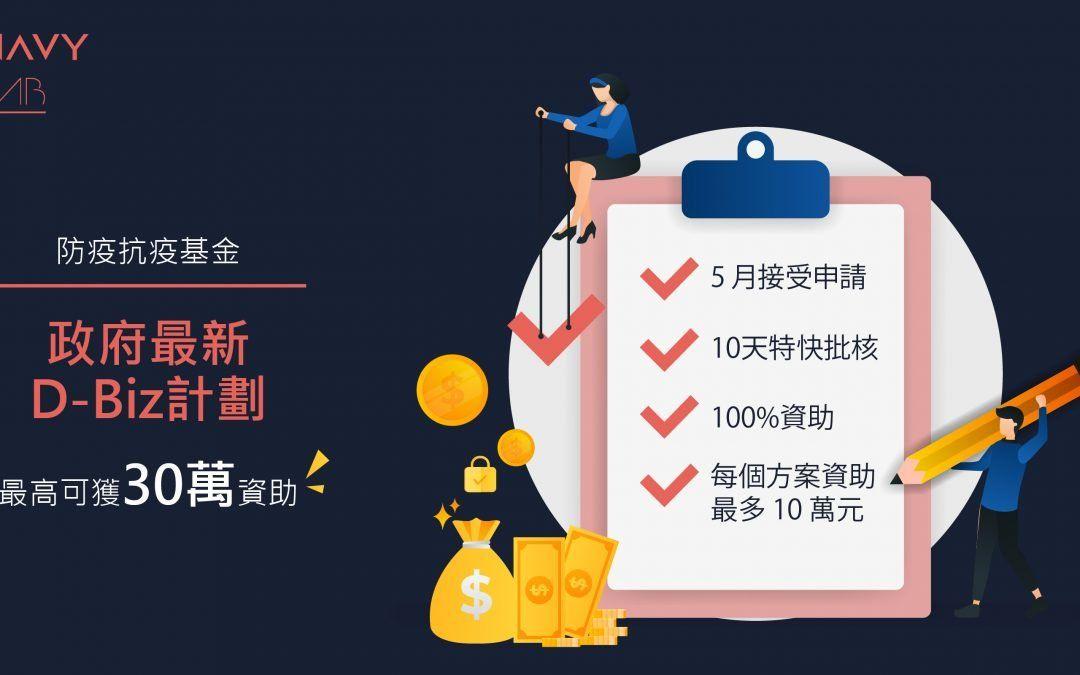

![[$10,000 Voucher Scheme 2022] How to get paid on Shopify, Shopline, Boutir, WooCommerce Online Stores](/_next/image?url=https%3A%2F%2Fcdn.sanity.io%2Fimages%2Fs2r765za%2Fproduction%2F38fe2db03df7e758b14f821a47acfd6825f55f93-2000x1290.webp&w=3840&q=75)
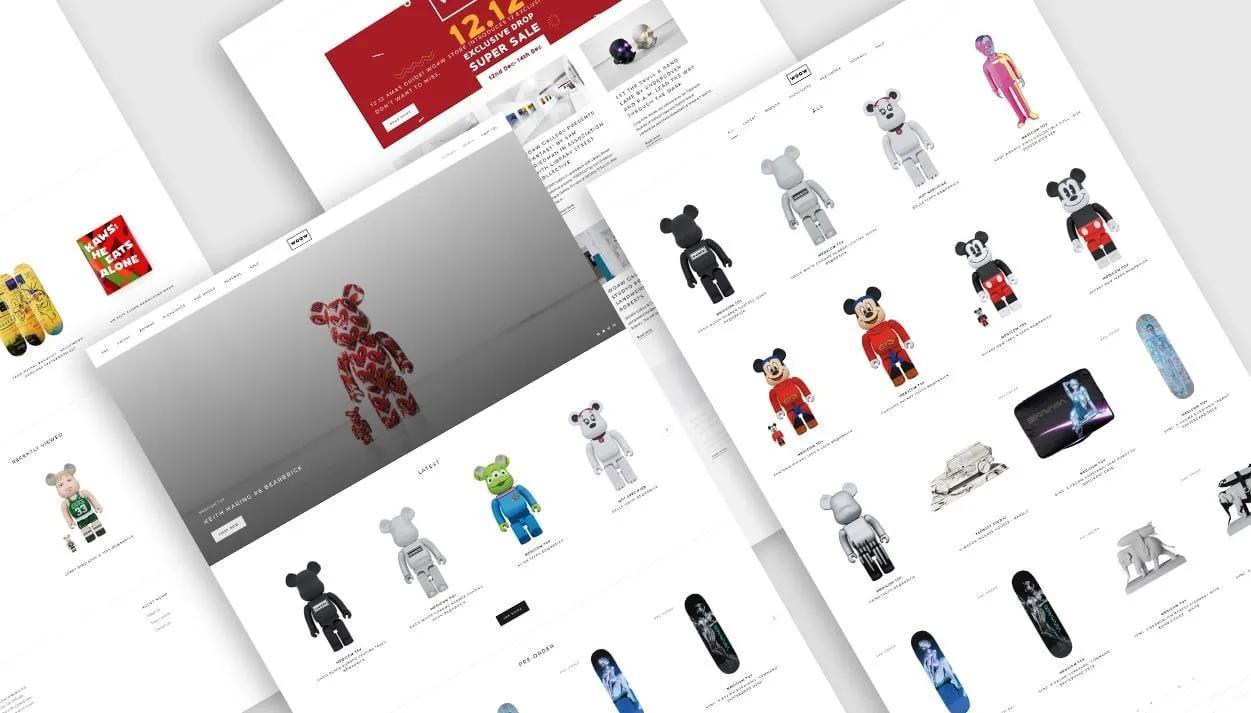
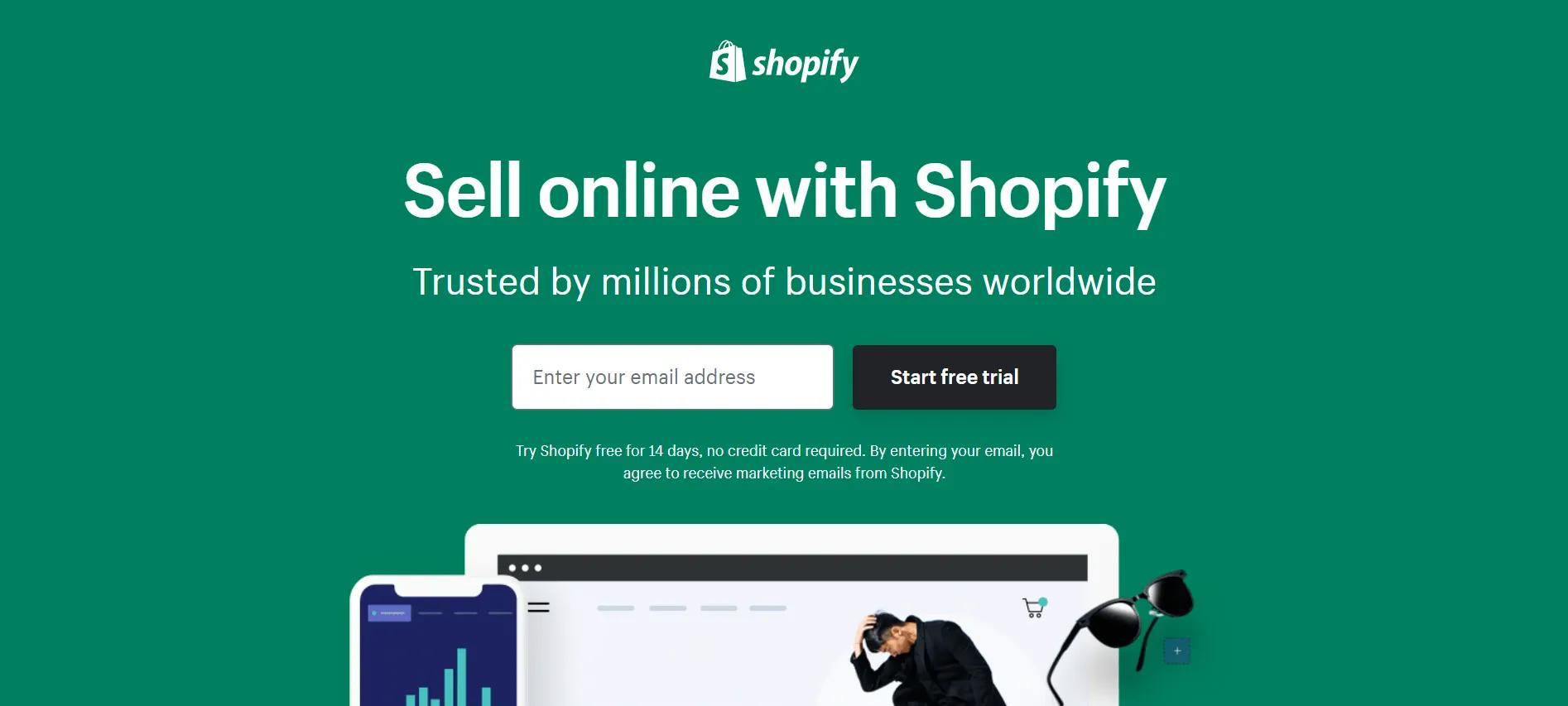

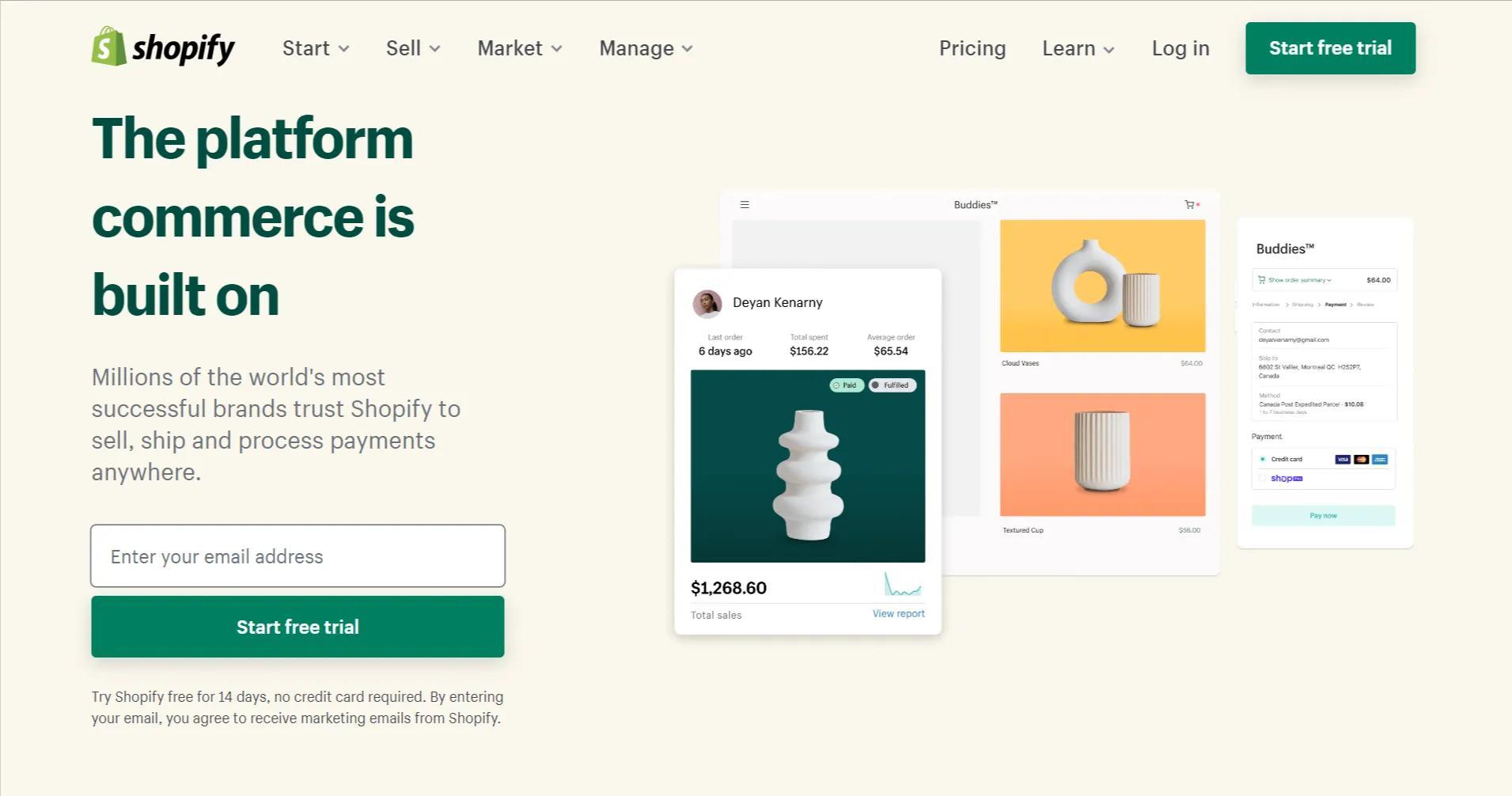
![Shopify vs. Shopify Plus: Should you upgrade? [Shopify Editions (Summer ’22)]](/_next/image?url=https%3A%2F%2Fcdn.sanity.io%2Fimages%2Fs2r765za%2Fproduction%2Faa5d4468f29ed65422c679a29670bdc9a5bfc294-1200x628.png&w=3840&q=75)






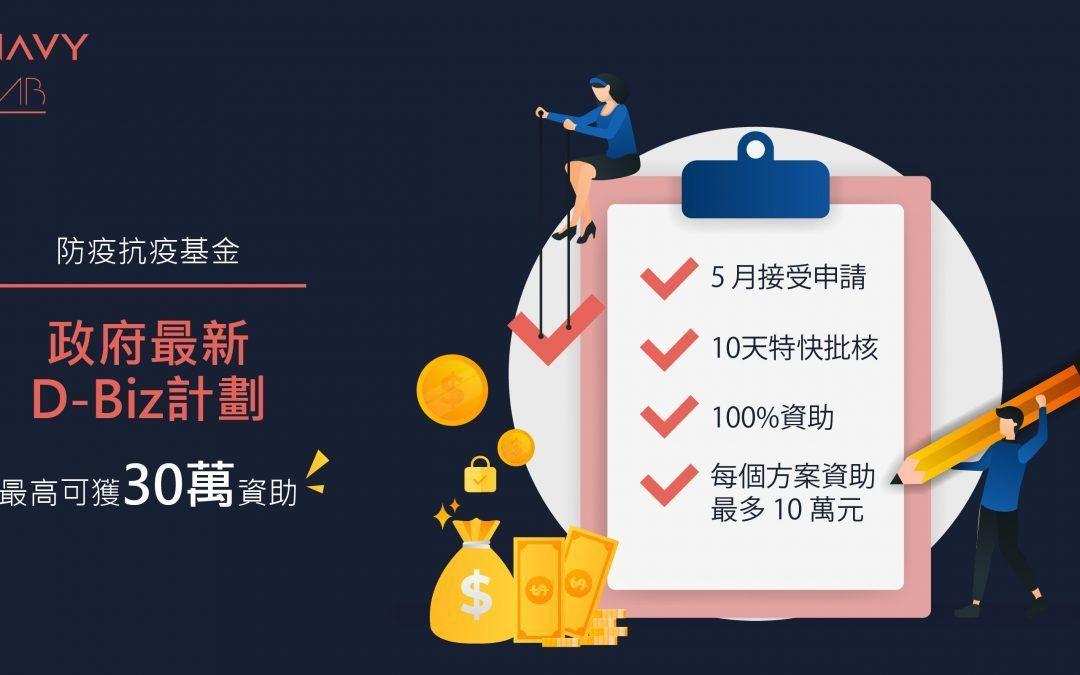

![[$10,000 Voucher Scheme 2022] How to get paid on Shopify, Shopline, Boutir, WooCommerce Online Stores](/_next/image?url=https%3A%2F%2Fcdn.sanity.io%2Fimages%2Fs2r765za%2Fproduction%2F38fe2db03df7e758b14f821a47acfd6825f55f93-2000x1290.webp%3Fauto%3Dformat&w=3840&q=75)
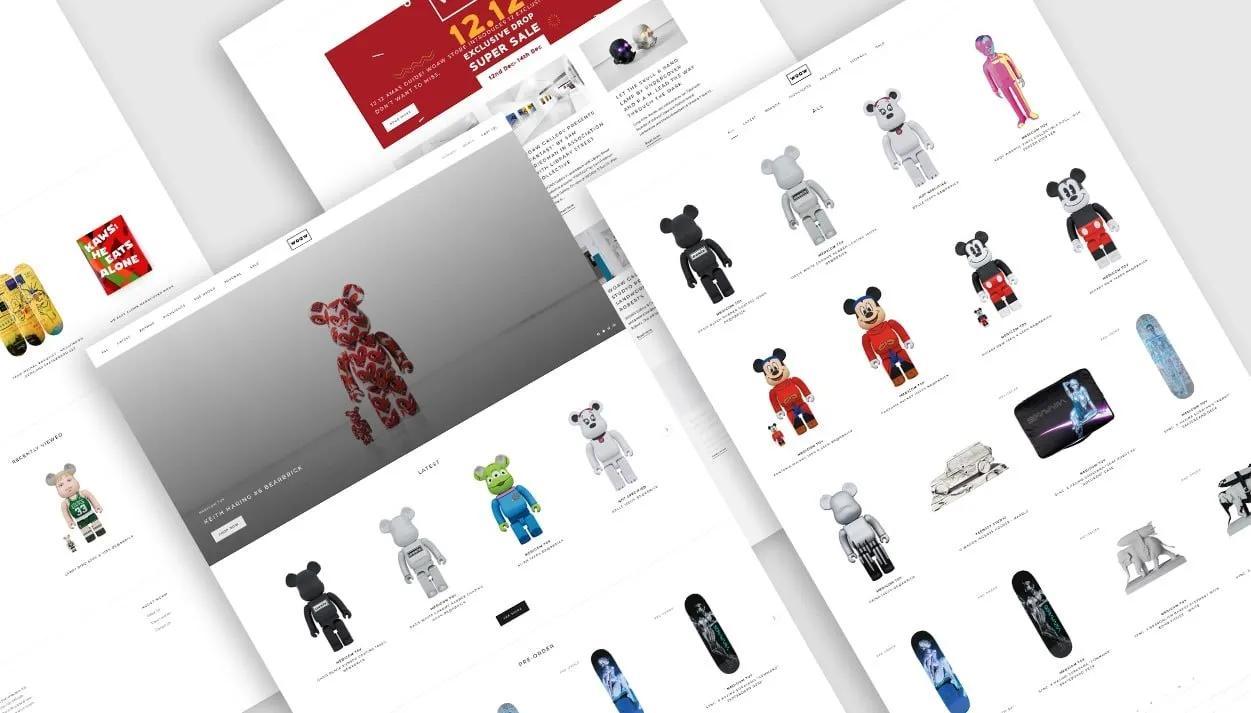
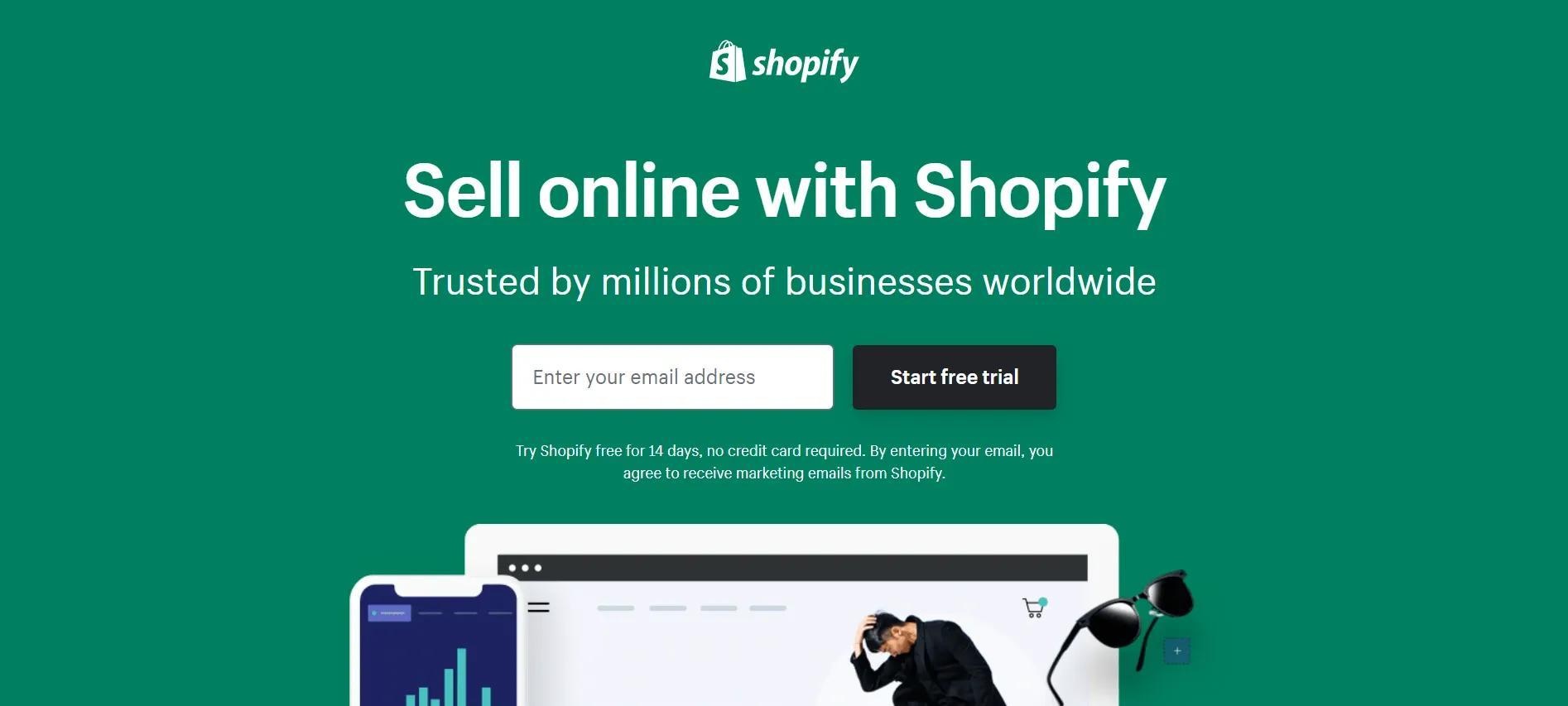

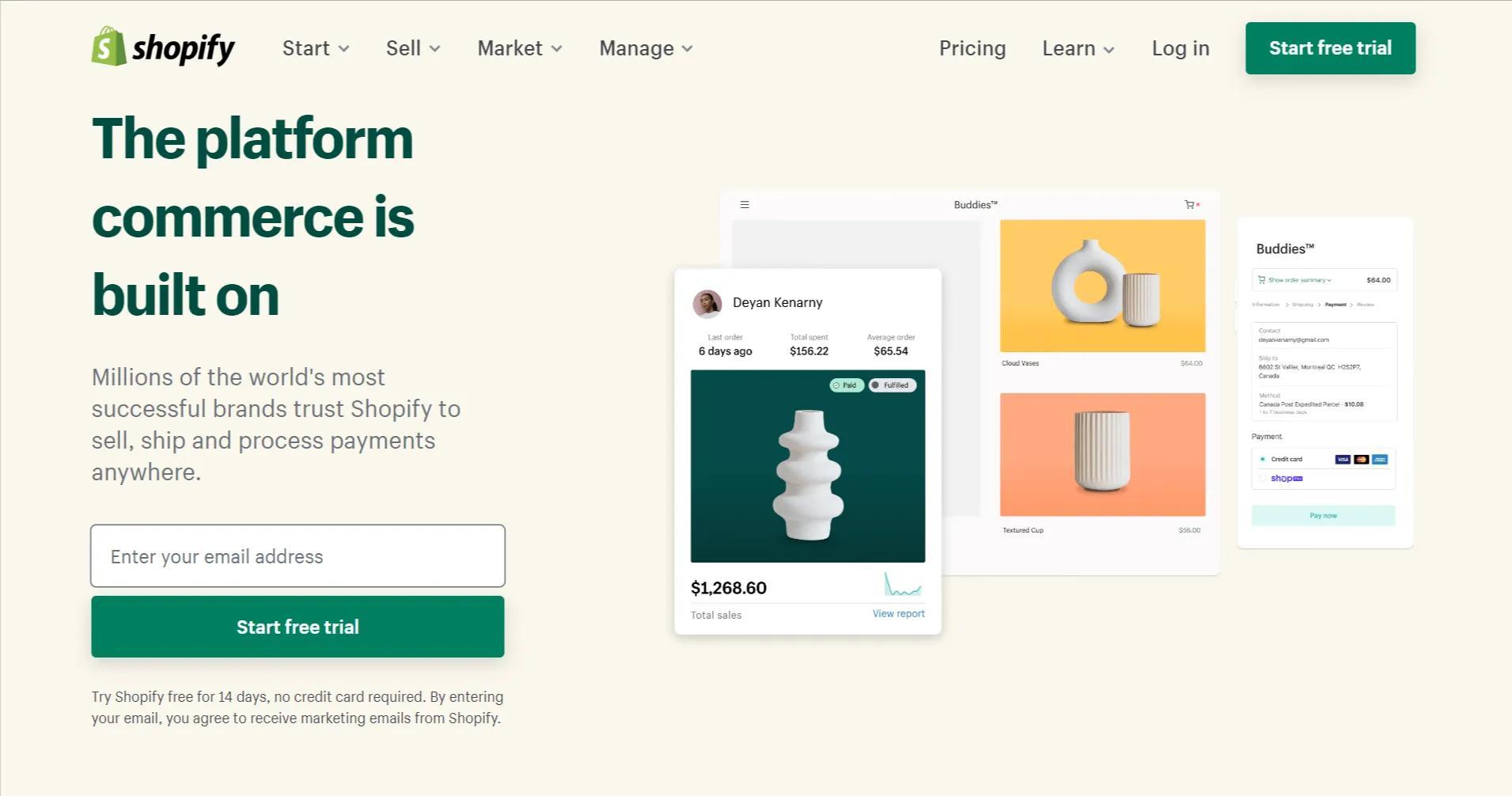
![Shopify vs. Shopify Plus: Should you upgrade? [Shopify Editions (Summer ’22)]](/_next/image?url=https%3A%2F%2Fcdn.sanity.io%2Fimages%2Fs2r765za%2Fproduction%2Faa5d4468f29ed65422c679a29670bdc9a5bfc294-1200x628.png%3Fauto%3Dformat&w=3840&q=75)


